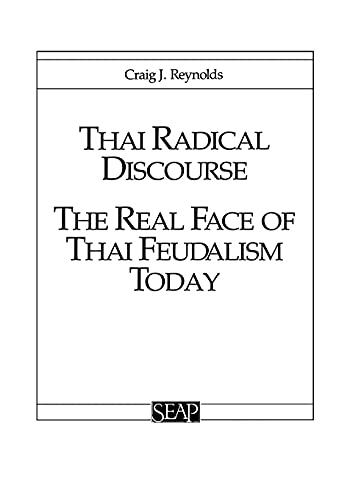
Thai Radical Discourse: The Real Face of Thai Feudalism Today
بواسطة
Craig Reynolds
لا توجد تقييمات بعد
History
تنسيق
غلاف ورقي
صفحات
186
لغة
الإنجليزية
منشور
Jan 1, 1994
الناشر
Southeast Asia Program Publications
الطبعة
First Edition
رقم ISBN-10
0877277028
رقم ISBN-13
9780877277026
الوصف
Craig J. Reynolds delves into the intricate tapestry of Thai history through a contemporary lens, reexamining Jit Poumisak's seminal work from 1957. This exploration reveals the persistent echoes of feudalistic structures still resonating within modern Thai society. Reynolds navigates the complexities of historical narratives and power dynamics, illustrating how they morph and adapt over time.
The author uncovers the intricacies of social hierarchies that have long been woven into the fabric of Thai culture, illuminating how remnants of feudalism influence contemporary political discourse. His analysis encourages readers to reflect on the challenges that arise from these enduring legacies, which continue to shape the nation’s identity and collective consciousness.
Moreover, Reynolds positions himself at the intersection of past and present, crafting a narrative that is both historical and deeply relevant. He engages with critical theories and ideologies that provide insight into the socio-political landscape of Thailand today, making this work a crucial resource for understanding its ongoing transformations.
Through meticulous research and insightful commentary, Reynolds ultimately urges readers to consider the implications of these feudal connections in shaping not only Thai society but also broader Southeast Asian dynamics. This book serves as both a critical reexamination of past ideologies and a vital contribution to the discourse surrounding contemporary Thai identity.
The author uncovers the intricacies of social hierarchies that have long been woven into the fabric of Thai culture, illuminating how remnants of feudalism influence contemporary political discourse. His analysis encourages readers to reflect on the challenges that arise from these enduring legacies, which continue to shape the nation’s identity and collective consciousness.
Moreover, Reynolds positions himself at the intersection of past and present, crafting a narrative that is both historical and deeply relevant. He engages with critical theories and ideologies that provide insight into the socio-political landscape of Thailand today, making this work a crucial resource for understanding its ongoing transformations.
Through meticulous research and insightful commentary, Reynolds ultimately urges readers to consider the implications of these feudal connections in shaping not only Thai society but also broader Southeast Asian dynamics. This book serves as both a critical reexamination of past ideologies and a vital contribution to the discourse surrounding contemporary Thai identity.